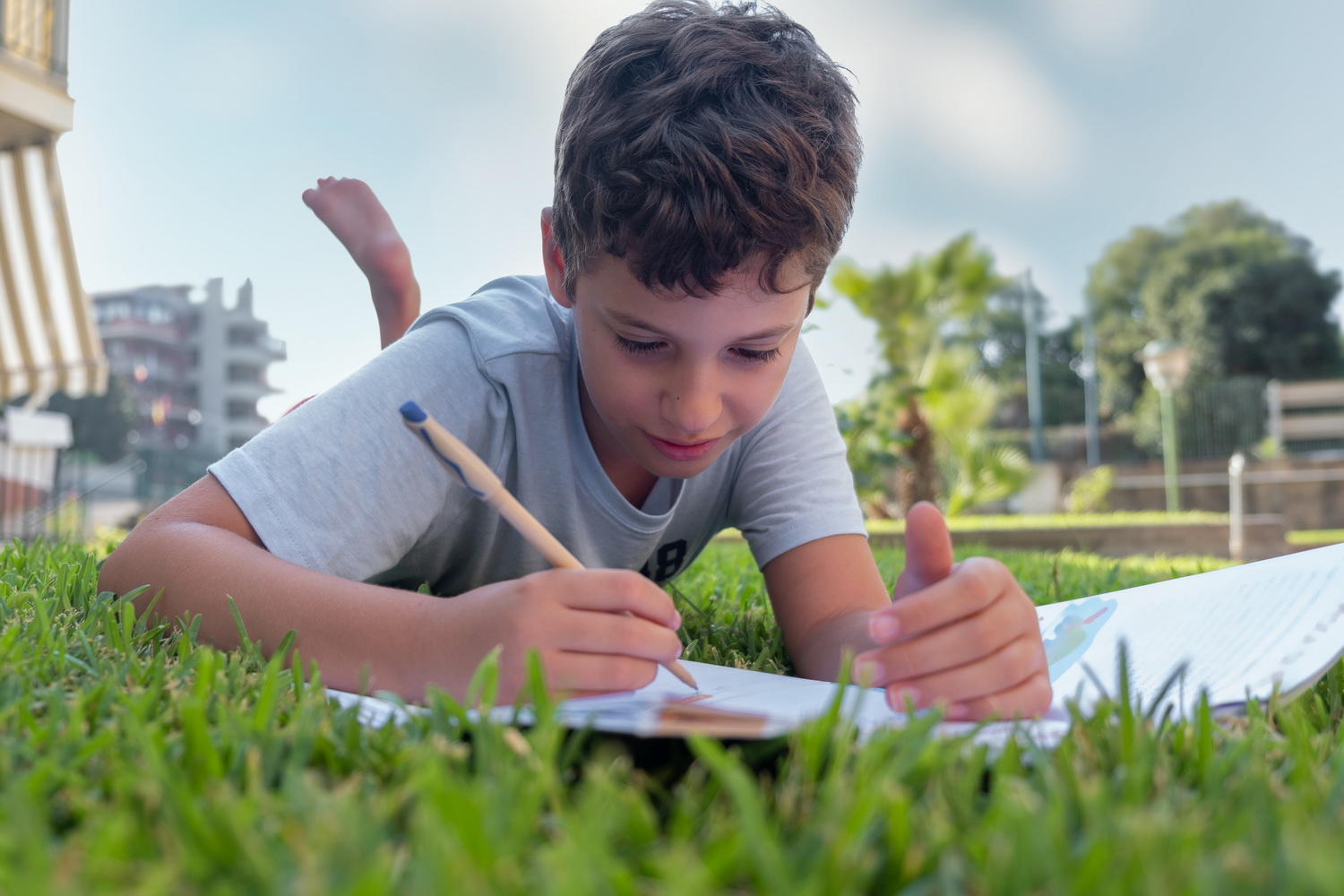Logical Reasoning Reading Fiction Worksheets for Ages 4-9
7 filtered results
-
From - To
Enhance your child's critical thinking skills with our "Logical Reasoning Reading Fiction Worksheets for Ages 4-9." Designed specifically for young readers, these fun and engaging worksheets challenge kids to delve deeper into narrative comprehension while developing their logic. Through a range of imaginative stories and thought-provoking questions, children will identify patterns, make predictions, and draw conclusions. Encourage a love for reading and strengthen foundational skills crucial for academic success. Perfect for classroom or home use, these worksheets nurture cognitive development, paving the way for lifelong learning. Unlock your child's potential with our expertly crafted logical reasoning resources today!
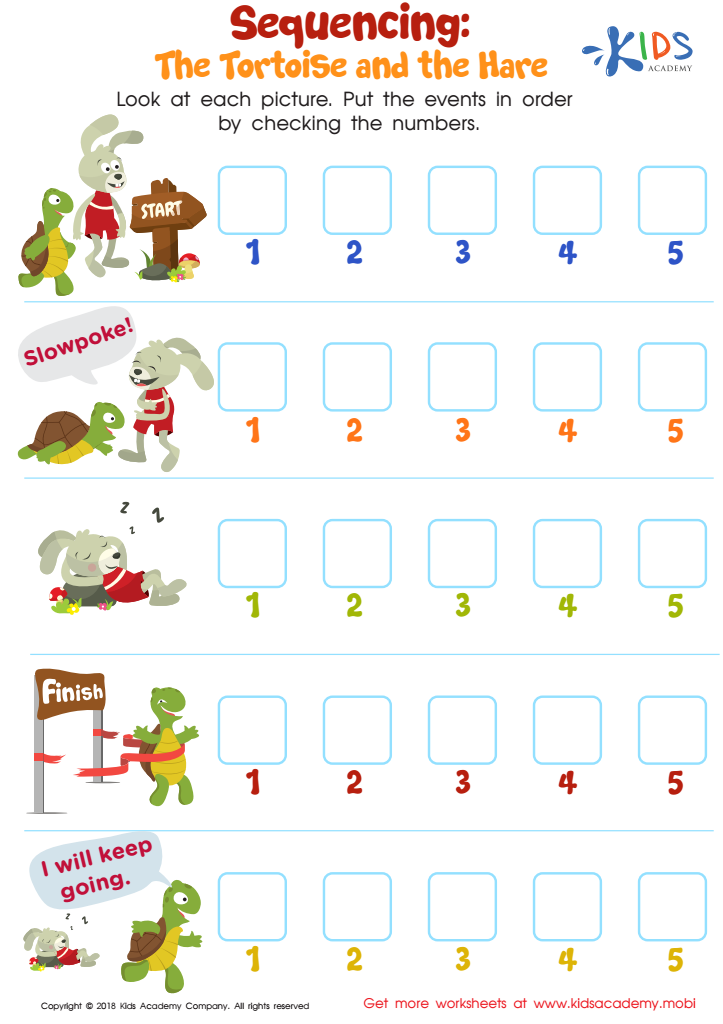

Sequencing: The Tortoise and the Hare Worksheet
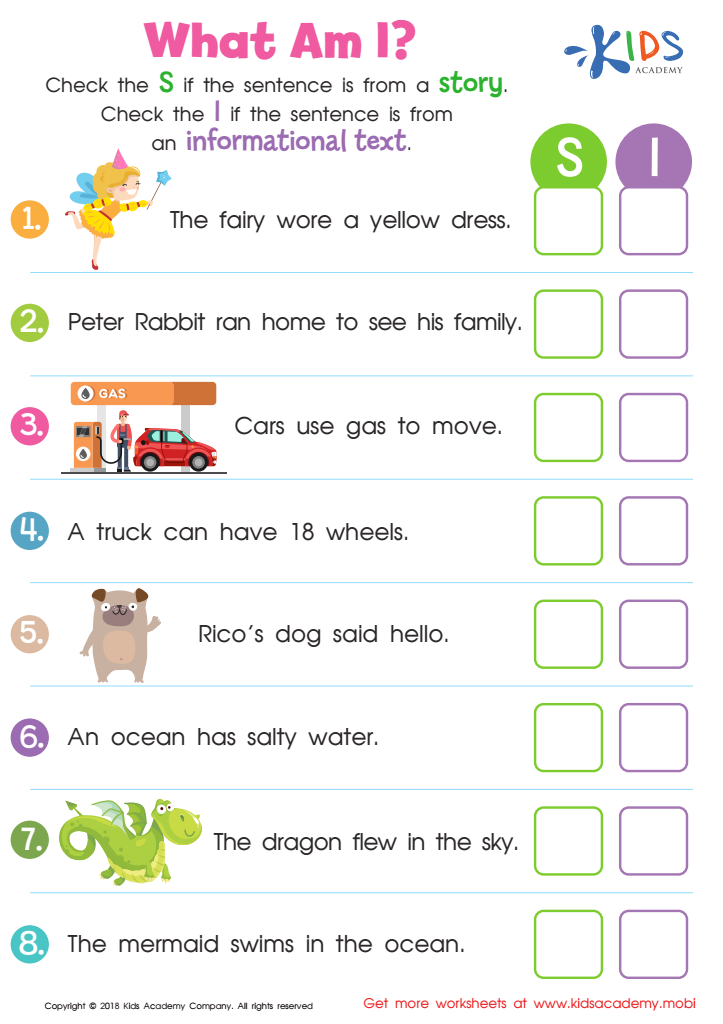

What Am I? Worksheet
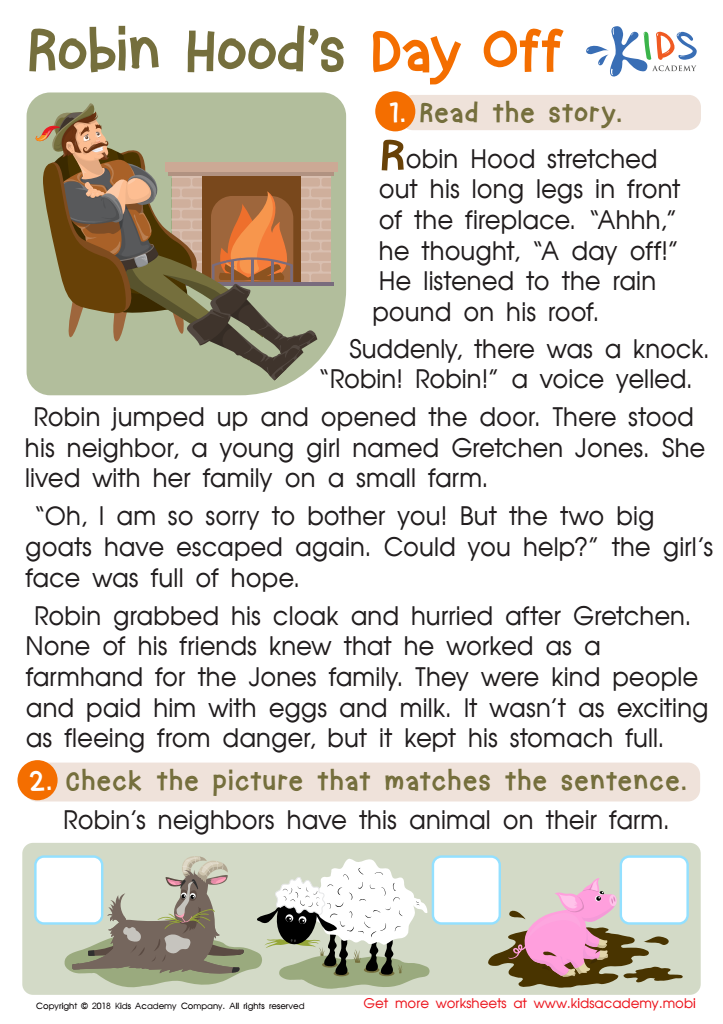

Robin Hood's Day Off Worksheet
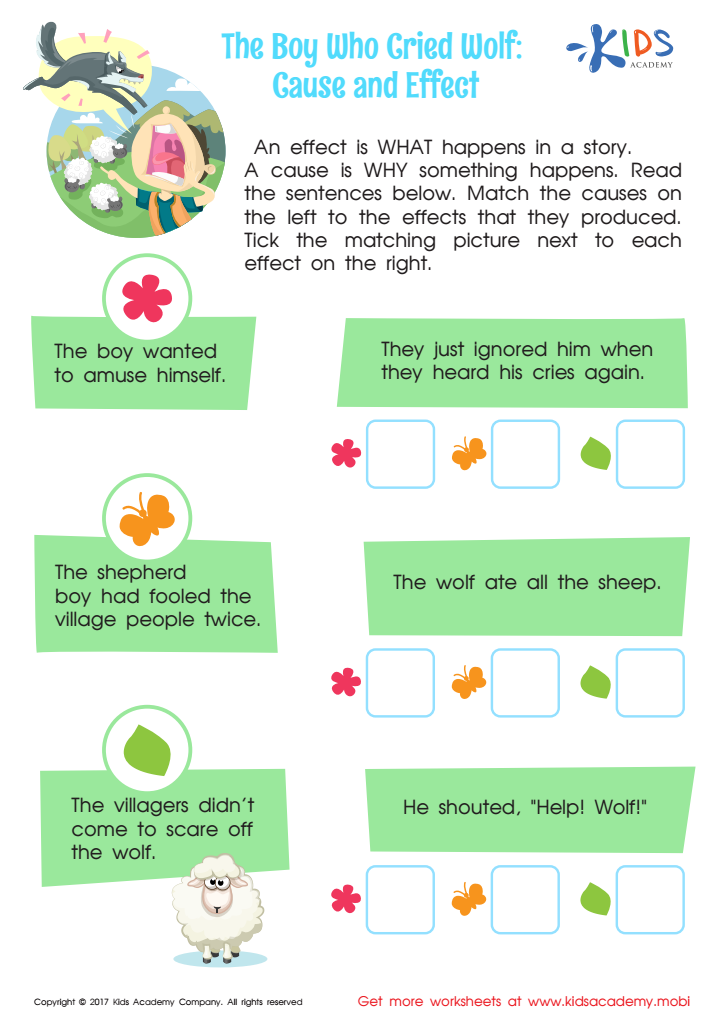

The Boy Who Cried Wolf: Cause and Effect Worksheet
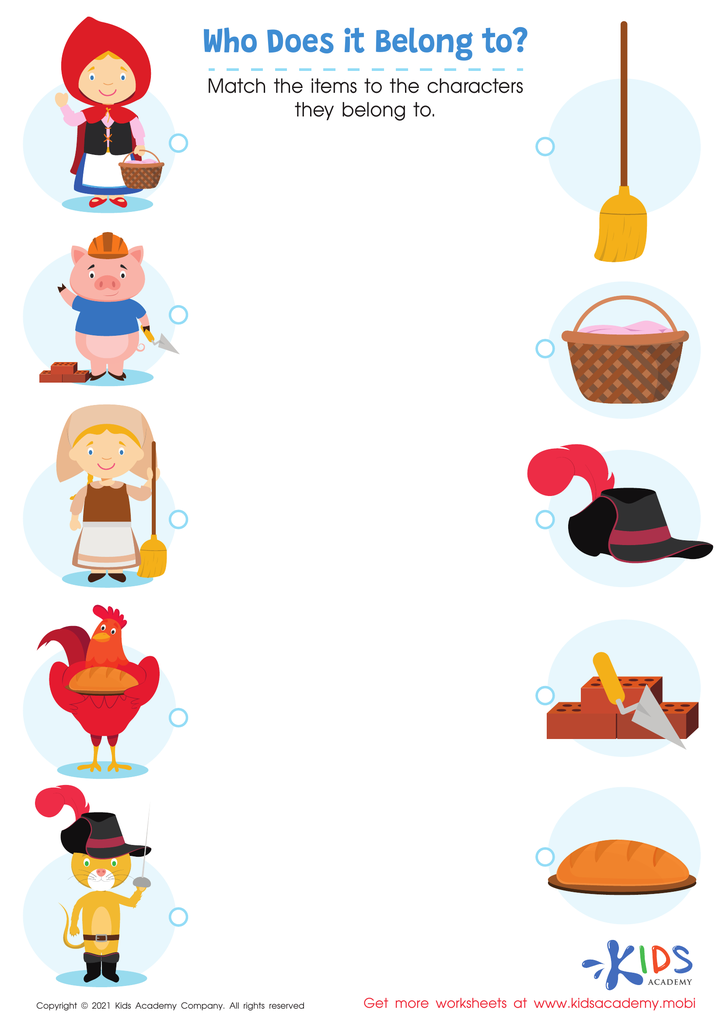

Who Does It Belong To? Worksheet
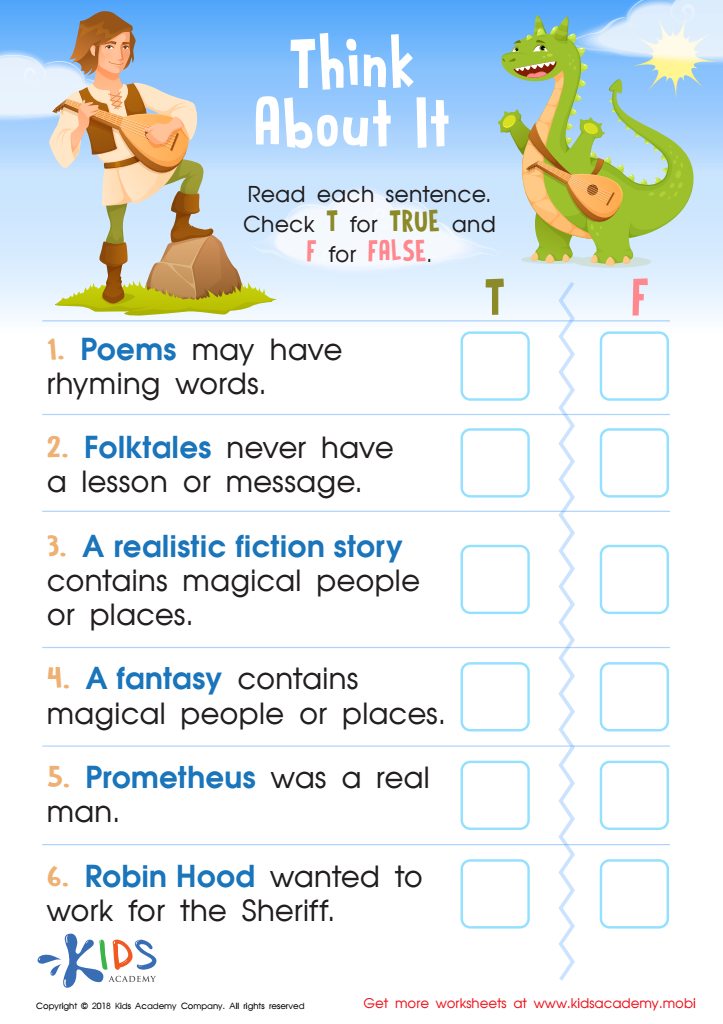

Think About It: Assessment Worksheet
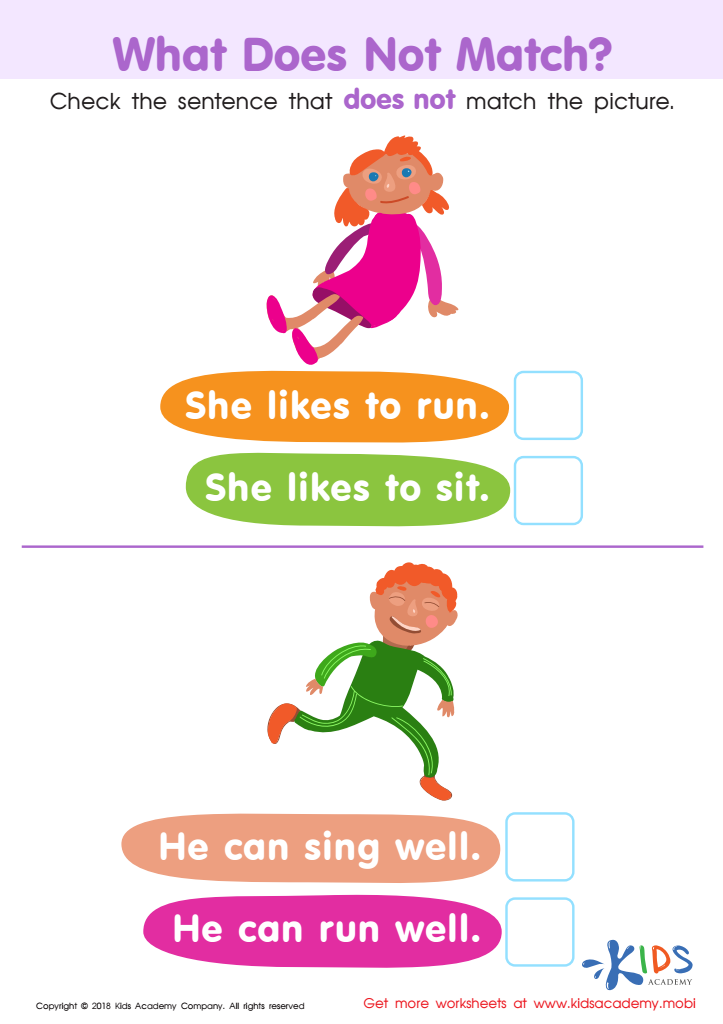

What Does Not Match? Worksheet
Logical reasoning and reading fiction are essential to a child's cognitive and emotional development, especially for children ages 4-9. During these formative years, children are rapidly acquiring new skills, and it's crucial to build a strong foundation for future learning.
Firstly, logical reasoning helps children improve problem-solving skills, understand cause and effect, and make informed decisions. By introducing logical reasoning activities, parents and teachers encourage kids to think critically and ask questions about the world around them. This not only enhances their understanding of daily life scenarios but also prepares them for more complex academic subjects in the future.
Reading fiction, on the other hand, enriches a child's imagination, vocabulary, and empathy. Stories allow young readers to explore different worlds, characters, and cultures, which broadens their perspectives and enhances their creativity. Fiction provides a safe space for children to experience emotions and situations they might not encounter otherwise. This emotional intelligence is critical for forming healthy relationships and social skills.
Combining logical reasoning with reading fiction creates well-rounded individuals. Readers learn to question story plots and predict outcomes, thereby blending creativity with critical thinking. Parents and teachers who focus on these areas are not just preparing children for academic success but nurturing curious, empathetic, and inventive problem-solvers.
 Assign to My Students
Assign to My Students




.jpg)
.jpg)
